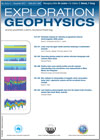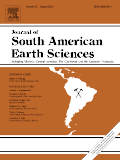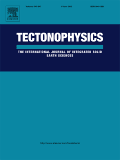
Quaderni di Geofisica
metrics 2024
Connecting Ideas and Innovations in Earth Science
Introduction
Quaderni di Geofisica is a distinguished academic journal published by the IST NAZIONALE GEOFISICA & VULCANOLOGIA-INGV in Italy, focusing on pivotal areas within the fields of geophysics, geology, and computer applications in Earth sciences. Since its inception, this journal has served as a vital platform for the dissemination of innovative research and methodologies, advancing our understanding of geophysical phenomena and their implications. The journal spans various converged years from 2007 to 2019 and 2021 to 2024, allowing for a comprehensive examination of contemporary developments in the field. Despite being categorized in Q3 and Q4 quartiles by Scopus, it plays a critical role in bridging the gap between theory and practice for researchers, professionals, and students alike. The journal's commitment to fostering scholarly communication is underscored by its strategic focus on multidisciplinary studies, making it an essential resource for those engaged in Earth sciences research. Readers can access the journal's content through institutional libraries or by direct request, ensuring a broad reach and ongoing contribution to the global scientific community.
Metrics 2024
 0.23
0.23 0.50
0.50 0.30
0.30 8
8Metrics History
Rank 2024
Scopus
IF (Web Of Science)
JCI (Web Of Science)
Quartile History
Similar Journals

GEOTECTONICS
Exploring Earth's Mysteries, One Tectonic Shift at a Time.GEOTECTONICS is a distinguished academic journal published by PLEIADES PUBLISHING INC, focusing on key developments in the field of geology. Established in 1978, the journal has dedicated itself to exploring the intricate processes and phenomena associated with Earth's tectonic systems, making substantial contributions to Earth and Planetary Sciences. With an impressive impact factor reflected in its Q2 ranking within the Scopus category of Geology, GEOTECTONICS stands out as a valuable resource for researchers, professionals, and students alike. The journal offers a platform for rigorous peer-reviewed research that spans both fundamental theories and practical applications in geosciences, affirming its significance in fostering academic discourse and advancing geological knowledge. Although it currently does not offer open access, the journal's accessible format and continued publication through to 2024 ensures that it remains at the forefront of geoscientific inquiry.

Russian Journal of Pacific Geology
Illuminating the Pacific's Geological WondersThe Russian Journal of Pacific Geology is a pivotal resource in the realm of Earth sciences, published by PLEIADES PUBLISHING INC. With an ISSN of 1819-7140 and an E-ISSN of 1819-7159, this journal has established itself as a significant publication for researchers, professionals, and students who explore the intricate geology of the Pacific region. Covering a wide array of topics including Geochemistry, Petrology, Geology, Geophysics, Oceanography, Paleontology, and Stratigraphy, the journal's relevance is underscored by its categorization within Q3 quartile rankings across multiple disciplines in the 2023 metrics. Operating from the United States, its influential publications span from 2007 to 2024, attracting a diverse audience dedicated to advancing the geological sciences. Although not an open access journal, it serves as a valuable repository of knowledge, presenting original research, reviews, and critical discussions that enhance scholarly discourse. The journal is recognized within the global scientific community, addressing significant geological challenges while fostering collaboration and innovation among scholars in the Earth and Planetary Sciences.

Exploration Geophysics
Unveiling the Mysteries of Our Planet's SubsurfaceExploration Geophysics is a prestigious journal published by Taylor & Francis Ltd., prominently focusing on the interdisciplinary fields of geology and geophysics. Established in 1970 and continuing its legacy to 2024, this journal serves as a vital platform for researchers, professionals, and students alike, disseminating cutting-edge research and innovative methodologies in earth sciences. With a robust impact factor that highlights its academic influence, and classified in the Q3 category for both geology and geophysics, it ranks among the notable publications in the field, placing it in the 51st and 50th percentiles of its respective categories. Although available through standard subscription access, the journal encourages engagement from a diverse readership aimed at exploring the intricacies of earth processes, resource exploration, and environmental evaluations. By contributing valuable insights and fostering collaborations, Exploration Geophysics continues to play a crucial role in advancing the understanding of our planet's subsurface dynamics.

Geofizicheskiy Zhurnal-Geophysical Journal
Advancing Geophysical Insights for a Dynamic WorldGeofizicheskiy Zhurnal-Geophysical Journal, published by the esteemed S I Subbotin Institute of Geophysics, National Academy of Sciences of Ukraine, stands as a vital resource for professionals and researchers in the field of geophysics. With an ISSN of 0203-3100 and an E-ISSN of 2524-1052, this journal is recognized for its rigorous peer-reviewed articles that delve into various aspects of geophysical research, including seismic studies, geodynamics, and Earth surface processes. Although currently not under an open access model, the journal maintains a commitment to disseminating high-quality research, thereby enriching the global geophysical community. The publication aims to foster collaboration and knowledge transfer among scientists and engineers while addressing complex geophysical challenges in a rapidly evolving landscape. By engaging with cutting-edge research, readers can expect to uncover insights that advance both theoretical understanding and practical applications in geophysical science.

Earth and Space Science
Navigating the Nexus of Earth Sciences and Environmental Insights.Earth and Space Science, published by the American Geophysical Union, is a distinguished open-access journal that has profoundly impacted the realms of earth and planetary sciences as well as environmental science since its inception in 2014. With impressive rankings, including Q1 in both Earth and Planetary Sciences and Environmental Science for 2023, this journal ranks 38th out of 195 in the general Earth and planetary sciences category and 51st out of 219 in environmental science, showcasing its commitment to high-quality research dissemination. The journal serves as a vital platform for researchers, professionals, and students, fostering the exploration of critical topics and advancements within these pivotal fields. With an accessible format, researchers can benefit from the rich content available, furthering their knowledge and ensuring that groundbreaking discoveries reach a broader audience. The journal's ongoing commitment to open access aligns with contemporary trends in scholarly communication, emphasizing inclusion and collaboration in tackling pressing global challenges.

JOURNAL OF SOUTH AMERICAN EARTH SCIENCES
Charting the Course of South American Geological PhenomenaJOURNAL OF SOUTH AMERICAN EARTH SCIENCES is a premier interdisciplinary journal dedicated to publishing high-quality research in the fields of Earth-Surface Processes, Geology, and Paleontology, making it an essential resource for scientists and researchers focused on South American geology and its diverse geological phenomena. Published by Pergamon-Elsevier Science Ltd in the United Kingdom, this journal has been instrumental in disseminating groundbreaking studies since 1988, showcasing contributions that push the boundaries of knowledge in Earth and Planetary Sciences. With an impressive Scopus ranking—positioning it in the 74th percentile for Paleontology and 71st for Geology—this journal not only reflects robust academic quality but also its commitment to addressing critical geological challenges in South America. Researchers will appreciate its objective of advancing understanding of geological processes while providing insights into past, present, and future Earth environments. Although available through traditional subscription models, the journal's vast repository of articles enriches the academic landscape, facilitating the sharing of vital research among professionals, students, and geological practitioners.

JOURNAL OF SEISMOLOGY
Unveiling the secrets of Earth's seismic activities.Welcome to the JOURNAL OF SEISMOLOGY, an esteemed publication in the field of Earth sciences, dedicated to the study of seismic phenomena and their implications on geophysical and geochemical processes. Published by SPRINGER and based in the Netherlands, this journal has been contributing to the academic community since 1997 and is set to continue through 2024. With an impressive ranking within the quartiles—Q2 in Geophysics and Q3 in Geochemistry and Petrology for 2023—this journal is a pivotal resource for researchers and professionals seeking to expand their understanding of seismic activities, earthquake mechanics, and related geological interactions. Despite not offering open access, it remains a highly regarded platform for disseminating rigorous research and findings in Earth and Planetary Sciences, sustaining a global readership keen on advancing their knowledge in this dynamic field. The JOURNAL OF SEISMOLOGY is committed to fostering scholarly exchange and advancing scientific inquiry, making it an invaluable asset for students, researchers, and professionals alike.

Vestnik of Saint Petersburg University Earth Sciences
Navigating the Terrain of Earth Science InnovationsVestnik of Saint Petersburg University Earth Sciences, published by ST PETERSBURG UNIV PRESS, serves as a pivotal platform for the dissemination of innovative research within the fields of Earth Sciences, Environmental Science, Geography, and Geology. This journal, with an ISSN of 2541-9668 and an E-ISSN of 2587-585X, aims to foster scholarly communication and facilitate advancements in understanding the diverse and complex interactions within our planet's systems. Operating from the Russian Federation, the journal is unique in its commitment to an open-access model, making critical research accessible to a global audience of researchers, professionals, and students. Although currently classified in the Q4 quartile in several relevant categories, its ranking showcases the potential for growth and increased impact within the academic community. Aiming to converge ideas and findings from 2017 to 2024, the Vestnik of Saint Petersburg University Earth Sciences is dedicated to enriching the dialogue and supporting collaborative research efforts in disciplines crucial for sustainable development and environmental stewardship.

TECTONOPHYSICS
Exploring the Dynamics of Our Planet's TectonicsTECTONOPHYSICS is a leading journal published by Elsevier that has been at the forefront of earth and planetary sciences since its inception in 1964. With both its print and e-ISSN identifiers (0040-1951 and 1879-3266), the journal offers a reputable platform for disseminating high-quality research in Earth-Surface Processes and Geophysics, proudly positioned in the Q1 category for both fields in 2023. With a Scopus ranking of #43 out of 179 in Earth-Surface Processes and #43 out of 165 in Geophysics, TECTONOPHYSICS demonstrates a strong impact, making it an essential resource for researchers and professionals involved in the geological and geophysical sciences. Published in the Netherlands, TECTONOPHYSICS is committed to advancing knowledge in tectonics and related disciplines, fostering innovative research that impacts our understanding of Earth's dynamic processes. The journal invites contributions that push the boundaries of science, making it a must-read for academia and industry alike.

DOKLADY EARTH SCIENCES
Unveiling Insights into Our Planet's DynamicsDOKLADY EARTH SCIENCES is a reputable journal published by MAIK NAUKA/INTERPERIODICA/SPRINGER, focusing on the dynamic field of Earth and Planetary Sciences. With an ISSN of 1028-334X and E-ISSN 1531-8354, this journal offers a platform for researchers to disseminate their findings and insights that contribute to our understanding of Earth systems over a continuous publishing span from 1998 to 2024. It currently holds a Q3 quartile ranking in the Earth and Planetary Sciences category, reflecting an emerging yet significant impact within its field, evidenced by its Scopus ranks where it stands at 123rd in general Earth sciences and 113th in miscellaneous Earth sciences. DOKLADY EARTH SCIENCES aims to bridge research gaps and foster collaboration among a diverse audience including researchers, professionals, and students committed to advancing knowledge in geoscience. The journal stands as a vital resource for those seeking to explore contemporary challenges and innovations within the realm of Earth sciences.